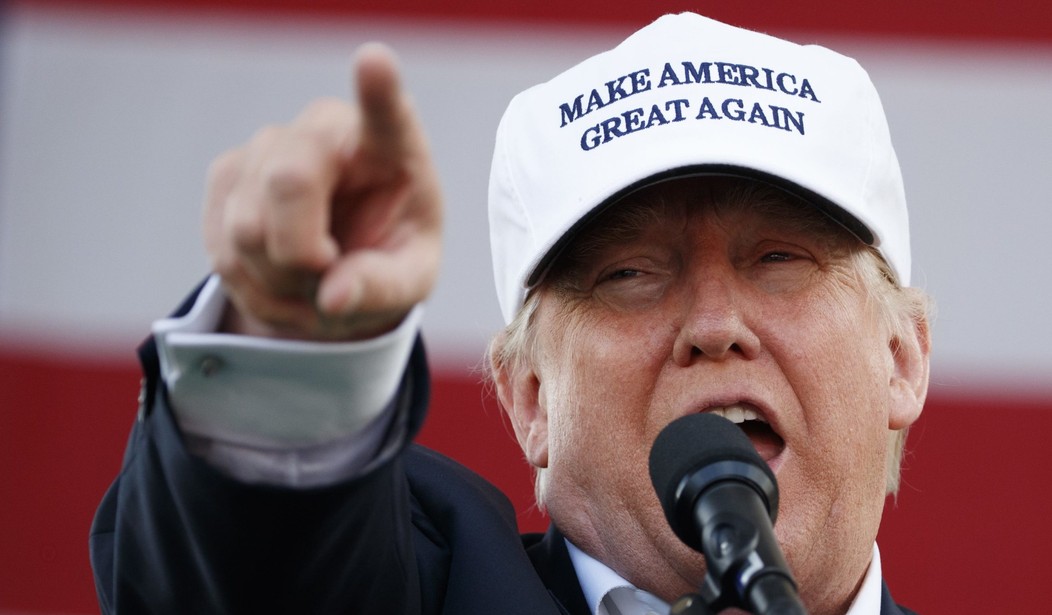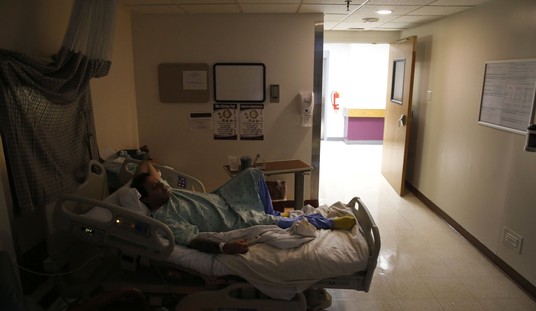Days after the 500,000-strong Women’s March on Washington, scientists are planning a march of their own. They allege that President Donald Trump’s administration has slashed funding, gagged scientific findings, and pressured them to abandon “science-based policies.” Some (The Boston Globe editorial board) have even accused Trump of launching a “war on science.”
On Tuesday, two Environmental Protection Agency (EPA) employees said that Trump’s administration had instructed their agency to remove the climate change page from its website. On Monday, Axios leaked a Trump administration memo for change at the EPA, which listed large cuts in climate programs and even “changing the way the EPA uses science.”
For climate alarmists this sounds like the end of the world. “An American government that ignores science to pursue ideological agendas endangers the world,” the group behind the science march declared on its website. Andrew Rosenberg, a spokesman for the Union of Concerned Scientists, declared that “the scientific community is ready to fight back against any efforts to marginalize or suppress science and undermine science-based policies and research people depend on.”
The problem is, the administration’s actions haven’t exactly been against science itself, but rather a particular politicized interpretation of science.
“The work of the EPA has been heavily politicized under the previous administration,” Jay Richards, assistant research professor at the Catholic University of America and senior fellow at the Discovery Institute, told PJ Media. “There is no evidence whatsoever that the current administration is interested in suppressing genuine research or purging scientific data. It is within its rights to change priorities, and to correct the ideological imbalances of the previous administration.”
Richards argued that “so much publicly funded climate research has not hewed closely enough to the data itself, preferring instead to rely on speculative models based on poorly tested assumptions.” Rather than determining “facts on the ground” in order to enable policymakers to “run cost/benefit analyses based on the real world,” the EPA “models assume the question ahead of time, so don’t constitute independent evidence of it.”
“With respect to climate change, it has yet to be determined precisely what the role of human activity is, and in particular, how sensitive the climate is to increased atmospheric carbon dioxide,” Richards added. “What is fairly clear is that most of the models predict about twice the rate of warming as we actually observe. That is the central scandal of the climate change debate.”
H. Sterling Burnett, research fellow on the environment at the Heartland Institute, laid out the political motives of these supposedly pro-science groups very succinctly. The Union of Concerned Scientists, for example, “aren’t scientists,” he told PJ Media in an interview Wednesday. “It’s a lobbying group. For $25, you too can become a concerned scientist!”
Burnett insisted that “everyone within all the agencies should have seen this coming,” because after all, Trump’s is a new administration. The president “is the administrator, the executive these agencies serve. They act like they’re independent and they should do what they want, but he is in control — they are under him!” These administrators are “acting like somehow they should be above what the law says, which is the President of the United States runs these agencies.”
In short, “they’d better get used to the new sheriff in town.”
Burnett insisted that Trump has a responsibility to reform the EPA, as he promised he would, and part of that reform is “deciding how grants and contracts are given out.” If the EPA is going to run on different principles under new management, the administrators will need to examine where federal money goes. “I would think any new administration should be doing something like this.”
Putting contracts on hold temporarily, while they are being reviewed, “is not corrupting science — it’s being responsible to the taxpayers who pay the bills,” Burnett argued. Naturally, many scientists whose projects have been interrupted might disagree, but when the company gets a new boss there are bound to be some changes.
What are the Trump administration’s goals for the EPA? Saving the taxpayers $513 million by cutting “states and tribal assistance grants,” $193 million from terminating climate programs, and $109 million by slashing “environment programs and management,” according to the memo leaked by Axios. The administration also plans to halt greenhouse gas regulations and the notorious Waters of the U.S. (“Wetlands”) Rule.
The memo also suggested Trump will “issue an executive order barring EPA from overruling federal/state regulatory/permit decisions unless in clear violation of established law.” Finally, the memo insisted, “unless major reforms of the agency’s use of science and economics are achieved, EPA will be able to return to its bad old ways as soon as an establishment administration takes office.”
The motive behind saving taxpayer dollars should be obvious, and the reversal of greenhouse gas regulations should be no surprise. Likewise with rejection of the wetlands rule, which Colorado Senator Cory Gardner attacked as “a massive expansion of federal power” that “puts the EPA in the ludicrous position of acting as the main regulator of ponds, ditches, and even intermittent streams across the country.” Similarly, holding the EPA accountable to keeping federal and state regulations is a clear “rule of law” reform.
Burnett argued that these limits are very important. In 2015, a Government Accountability Office investigation discovered that the EPA had engaged in “covert propaganda” and violated federal law by lobbying for the wetlands rule, The New York Times reported. In 2014, released emails showed collusion between EPA staff and environmental organizations like the Sierra Club. Burnett argued that EPA staff have “had meetings off-site so people wouldn’t have to sign in, to avoid the kind of reporting that’s required when you’re meeting with lobbyists.”
“Trump’s going to stop all that,” Burnett declared, arguing that the new president would tighten up standards at the agency.
When it comes to balancing science and economics, Burnett cited the Supreme Court’s ruling in Michigan v. Environmental Protection Agency (2015). Writing for the majority, Justice Antonin Scalia ruled that the EPA “must consider cost — including, most importantly, cost of compliance — before deciding whether regulation is appropriate and necessary.” The Heartland scholar interpreted this, saying “you can’t impose high costs for negligible benefits.”
In terms of the state of climate science, Burnett argued that it is hypocritical for liberals to claim that “the science is settled” while at the same time pushing for greater government investment in climate science. “Let’s spend money on science that’s not settled, like a cure for cancer, how to make energy more affordable and more abundant, how to use fossil fuels in cleaner ways,” he said. “Either it’s not settled, in which case they should stop saying it is, or it is settled and it’s time to move on to something else.”
For liberals to claim that cutting down on climate research from the EPA “undermines science” implies that “the only science worth studying is the part of science that expands government’s power over people’s lives.”
Trump’s changes don’t undermine science “unless you have a very narrow view of science which only includes expanding the government,” and his administration is “doing what every administration should do when it comes into office.”
The claim that Trump’s administration is anti-science will also likely be entirely silenced by NASA spending, the Heartland scholar suggested. Trump did promise an emphasis on space exploration in his inauguration speech. “We’re going to start spending money on space. Real money,” Burnett predicted. “Do what the agency was set up to do: take us to new worlds, study the universe.”









Join the conversation as a VIP Member